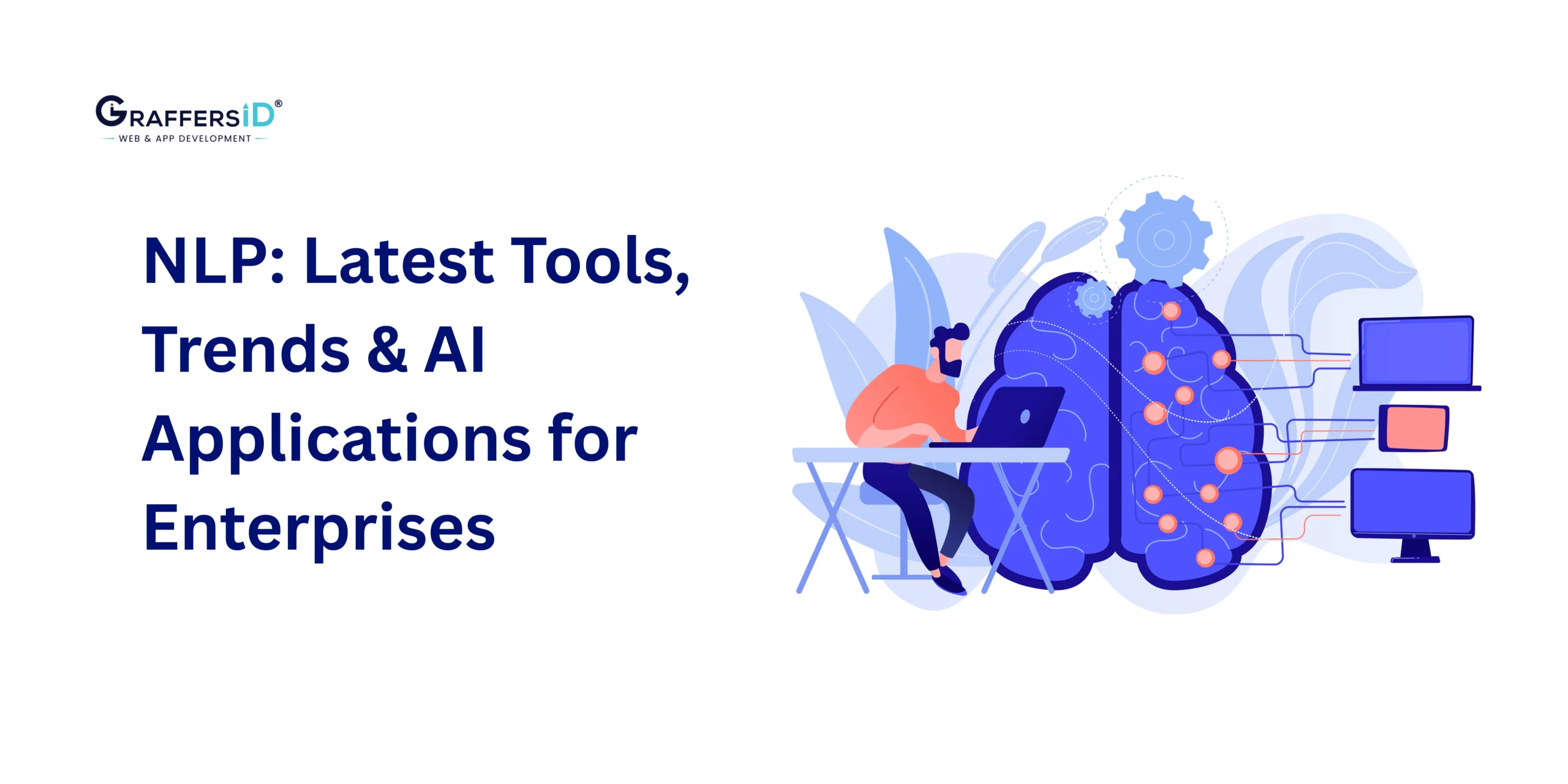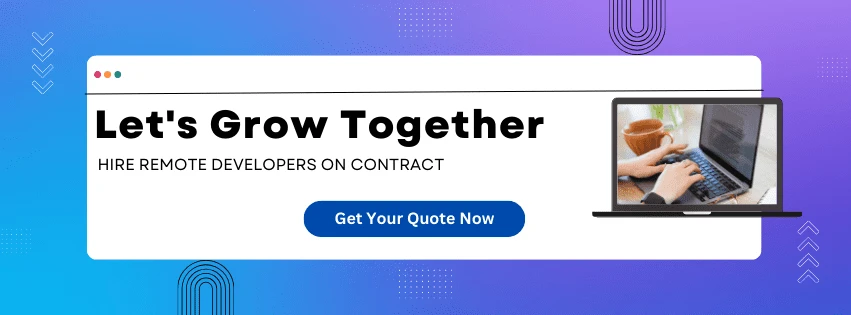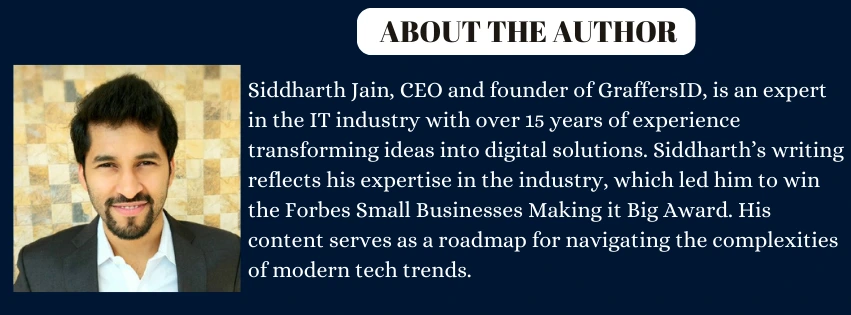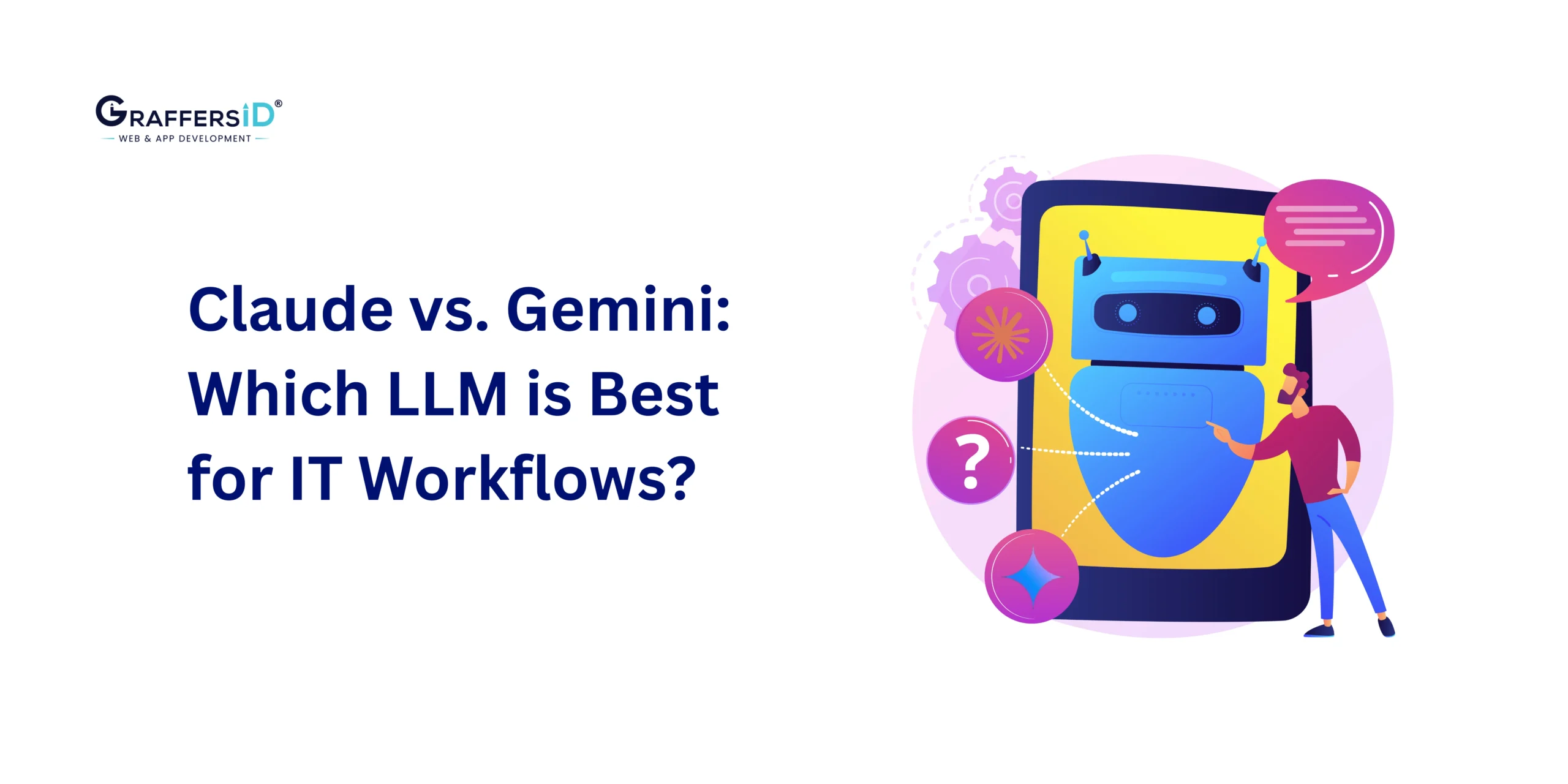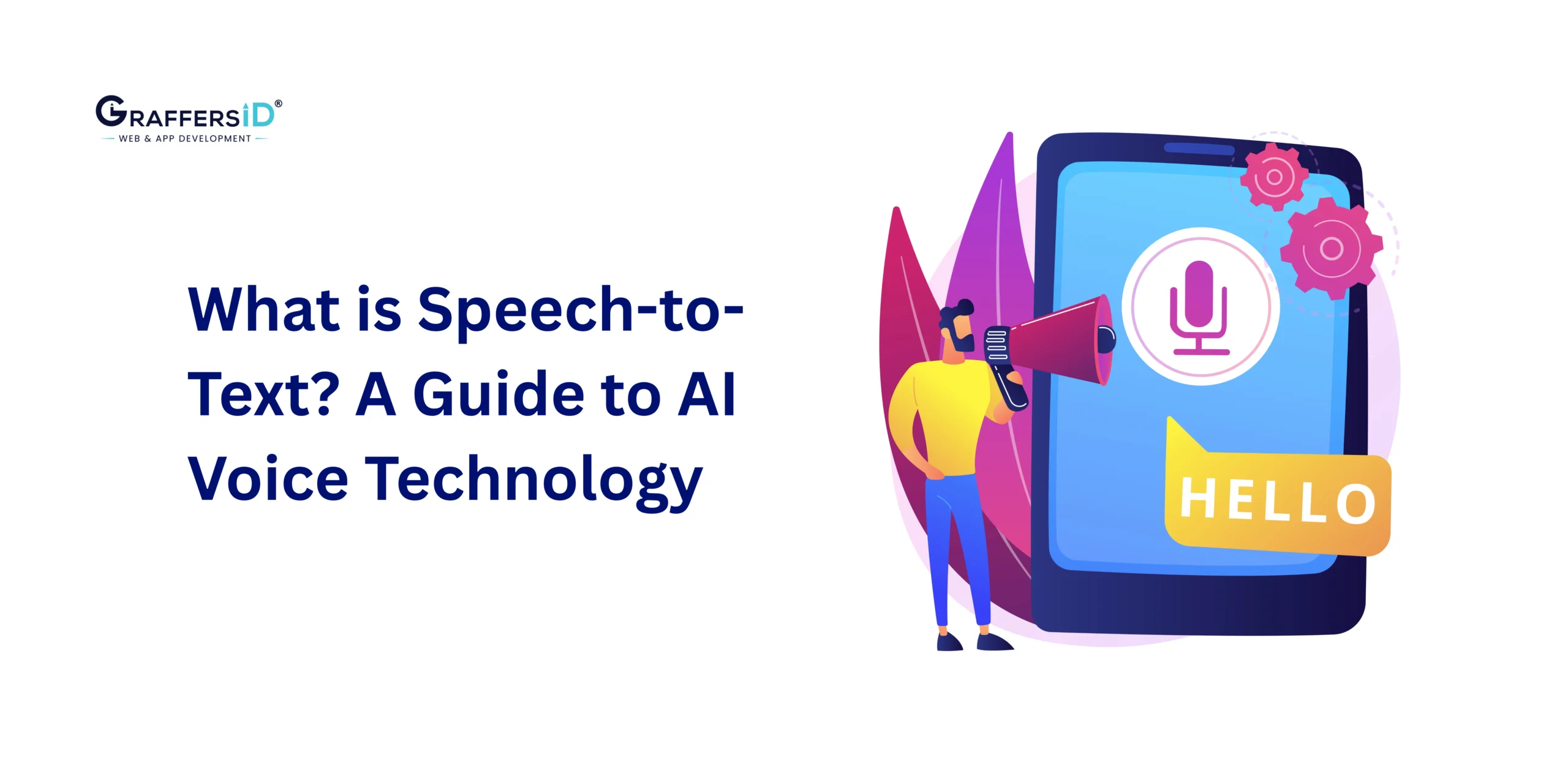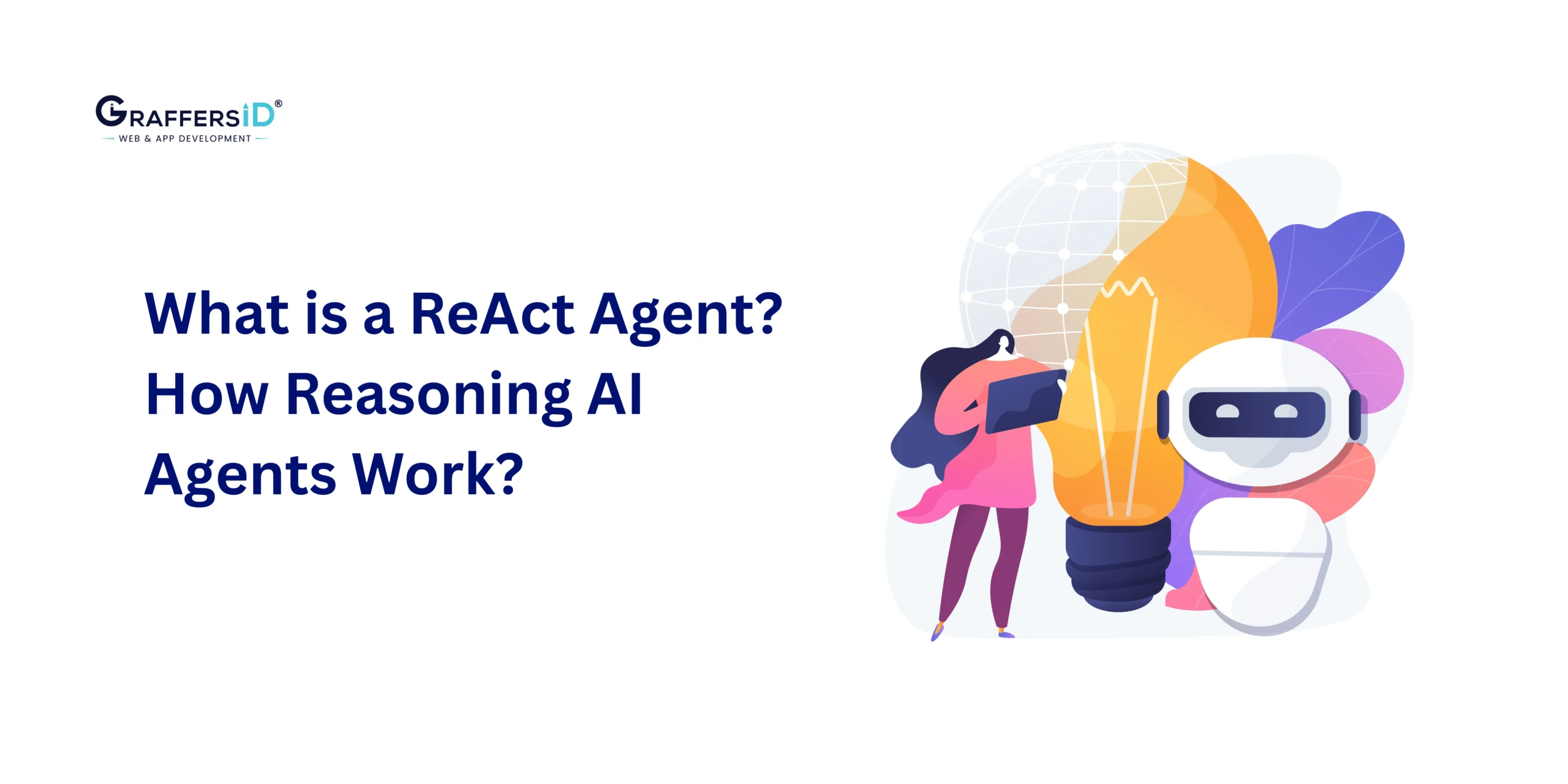Natural Language Processing (NLP) has become one of the most transformative technologies in AI by 2026. Today, NLP not only enables machines to understand, interpret, and generate human language but also powers real-time decision-making, multilingual communication, and workflow automation across industries.
With innovations in deep learning, transformer architectures, and context-aware reasoning, NLP has evolved from a supporting technology to the backbone of intelligent applications.
In this blog, we explore how NLP has evolved, the latest tools and research trends, and practical applications across industries in 2026.
Evolution of NLP: From Simple Parsing to Contextual Understanding
Over the last decade, NLP has progressed rapidly due to several milestones:
-
BERT (2018): Introduced bidirectional contextual understanding, revolutionizing sentiment analysis, Q&A, and semantic comprehension.
-
GPT-3 (2020): OpenAI’s 175B parameter model enabled near-human text generation.
-
GPT-4, Claude, and Gemini (2023-2026): Multimodal abilities, enhanced reasoning, and few-shot learning unlocked advanced applications across domains.
-
Retrieval-Augmented Generation (RAG, 2023+): Combines generative models with real-time retrieval to deliver accurate, context-aware responses.
These innovations highlight the efficiency of transformer-based architectures, forming the foundation for modern NLP systems.
Read More: Agentic AI vs. Generative AI: Key Differences CTOs Must Know in 2026
Key NLP Research Focus in 2026
Research has moved beyond language understanding to focus on human-like reasoning, multimodal intelligence, and privacy-preserving NLP:
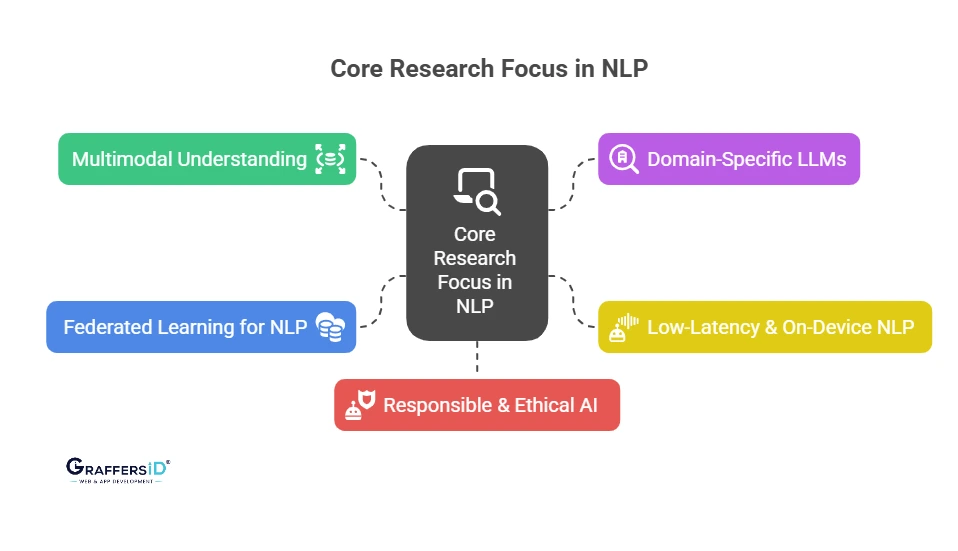
-
Multimodal Understanding: Models like GPT-4V and ImageBind integrate text, audio, video, and images for richer comprehension.
-
Domain-Specific LLMs: Healthcare, legal, finance, and e-commerce models outperform general-purpose LLMs in specialized tasks.
-
Low-Latency & On-Device NLP: Edge computing reduces cloud dependency, enabling real-time processing for mobile, IoT, and AR/VR applications.
-
Federated Learning: Decentralized model training ensures data privacy while maintaining high performance.
-
Ethical & Explainable AI: Bias mitigation, transparency, and accountability are central to modern NLP systems.
Latest NLP Techniques & Methods
Modern NLP leverages advanced methods to enhance intelligence:
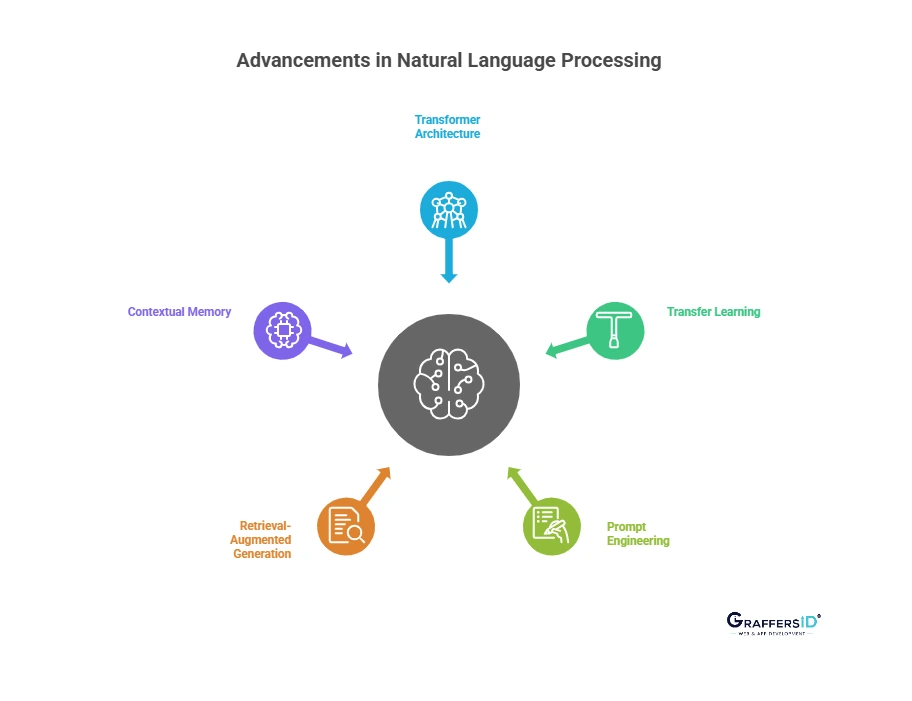
-
Transformer Architecture: Self-attention models capture relationships in long text sequences.
-
Transfer & Few-Shot Learning: Pre-trained models like GPT-4.5 are adapted to specific tasks with minimal examples.
-
Prompt Engineering: Strategic prompts guide LLMs for accurate outputs without retraining.
-
Retrieval-Augmented Generation (RAG): Combines factual document retrieval with generative AI for precision.
-
Contextual Memory & Chain-of-Thought (CoT): Supports multi-step reasoning and coherent conversational flow.
Advancements in Core NLP Tasks
Fundamental NLP tasks are now smarter and more context-aware:
-
Semantic Understanding: Models detect intent, sarcasm, metaphors, and nuanced meaning.
-
Sentiment Analysis: Multi-layered sentiment detection improves emotional intelligence in chatbots.
-
Named Entity Recognition (NER): Recognizes domain-specific entities without extensive retraining.
-
Summarization: Abstractive models generate concise summaries for contracts, research papers, and transcripts.
-
Intent Detection & Co-reference Resolution: Tracks entities and pronouns across long conversations accurately.
Top NLP Tools, Frameworks, and APIs in 2026
NLP developers in 2026 have access to powerful, plug-and-play solutions:
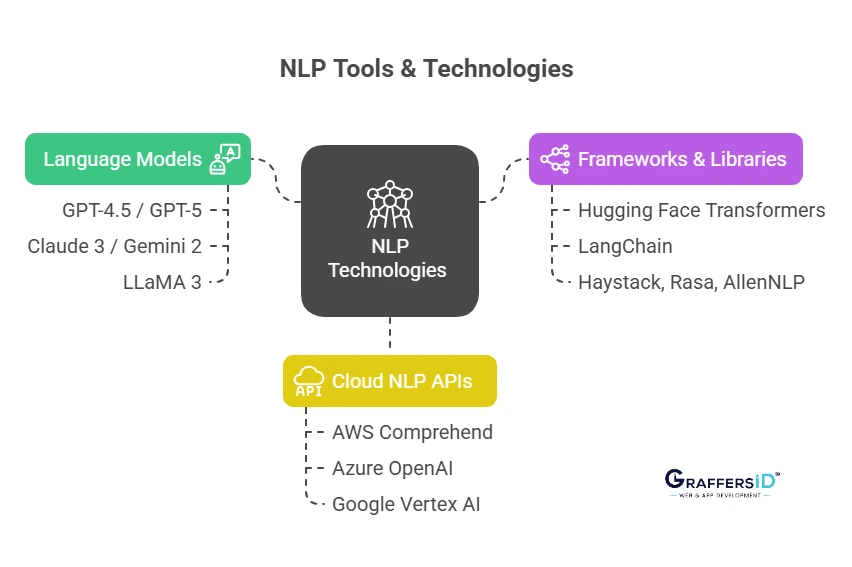
1. Language Models
-
GPT-4.5 / GPT-5: Multimodal, multilingual, personalized AI interactions.
-
Claude 3 / Gemini 2: Advanced reasoning and real-time conversational AI.
-
LLaMA 3: Open-source, customizable for specialized NLP apps.
2. Frameworks & Libraries
-
Hugging Face Transformers: Fine-tuning and deploying open-source models.
-
LangChain: Agentic workflows using LLMs for decision-making.
-
Haystack, Rasa, and AllenNLP: For search pipelines, chatbots, and academic research.
3. Cloud NLP APIs
- AWS Comprehend, Azure OpenAI, and Google Vertex AI: Translation, summarization, NER, and sentiment detection.
Real-World NLP Applications Across Industries in 2026
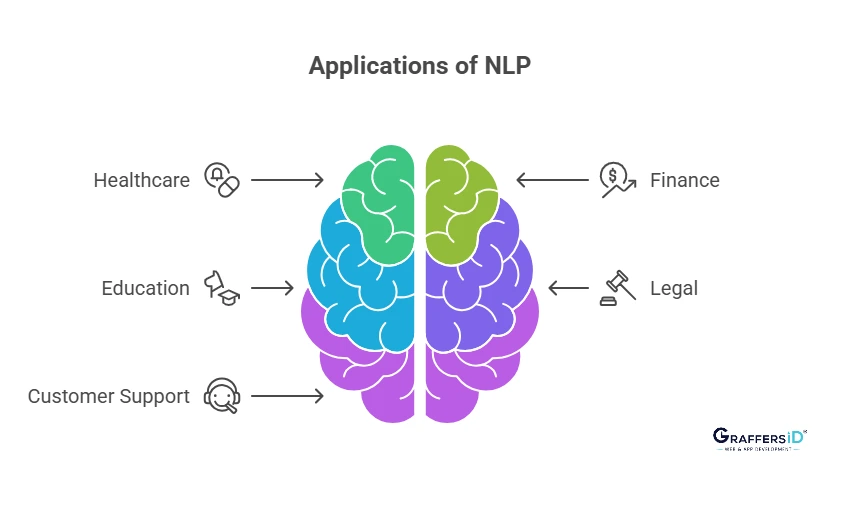
1. Healthcare
- Clinical Summarization: Automatically summarizes physician notes for patient handovers.
- Drug Discovery: NLP models analyze journals and molecular databases to suggest compound interactions.
- Patient Interaction: Chatbots assist with appointment booking, symptom triage, and prescription reminders.
2. Finance
- Fraud Detection: NLP parses transactional descriptions and flags unusual behavior.
- Investor Sentiment Analysis: Scrapes news, blogs, and social media to predict market sentiment.
- Document Automation: NLP reads and extracts data from invoices, agreements, and disclosures.
3. Education
- AI Tutors: NLP-powered tutors offer personalized feedback, grammar correction, and topic suggestions.
- Essay Evaluation: Automatically grades based on coherence, structure, and vocabulary.
- Voice-to-Text Learning: Converts spoken lectures into summarized notes.
4. Legal
- Contract Analysis: Extract clauses, identify risks, and benchmark against standards.
- Compliance Monitoring: NLP tools scan communications to flag potential legal violations.
- Legal Research Assistants: Answer queries based on case law and statutes.
5. Customer Support
- Emotionally Intelligent Chatbots: Detect frustration, offer empathy, and escalate wisely.
- 24/7 Multilingual Support: NLP enables instant translation and understanding across regions.
How NLP Enhances Human-Machine Collaboration in 2026?
NLP is redefining human-machine interaction:
- Emotion-Aware Systems: Understanding user emotions from tone or text sentiment.
- Voice-First Interfaces: NLP is powering wearables, smart glasses, and home assistants.
- Accessibility: For the visually or speech-impaired, screen readers and voice interfaces are becoming more responsive and natural.
- AR/VR & Metaverse Integration: NLP enables natural conversation with AI avatars, NPCs, and virtual agents in immersive environments.
Benefits of Natural Language Processing (NLP) in 2026
Organizations implementing NLP in 2026 report:
-
50–70% reduction in manual document processing.
-
Increased user satisfaction via smarter bots.
-
Faster decision-making with real-time insights.
-
Multilingual expansion with minimal extra cost.
Did You Know?
85% of U.S. tech companies use LLM-powered chatbots to cut customer support costs by over 40%.
Best NLP Tools & Datasets for Developers in 2026
To stay ahead, developers use:
- Datasets: SQuAD, MIMIC-III (medical), OSCAR (multilingual), MS MARCO (search), and LegalBench (legal reasoning).
- Open-Source Tools: Hugging Face AutoTrain, Colab notebooks, and LangChain templates.
- Model Hubs: Hugging Face, Replicate, and Together.ai for community-contributed models.
Ethical Challenges in NLP in 2026 & How to Solve Them
Despite advancements, NLP faces bias, misinformation, and privacy concerns:
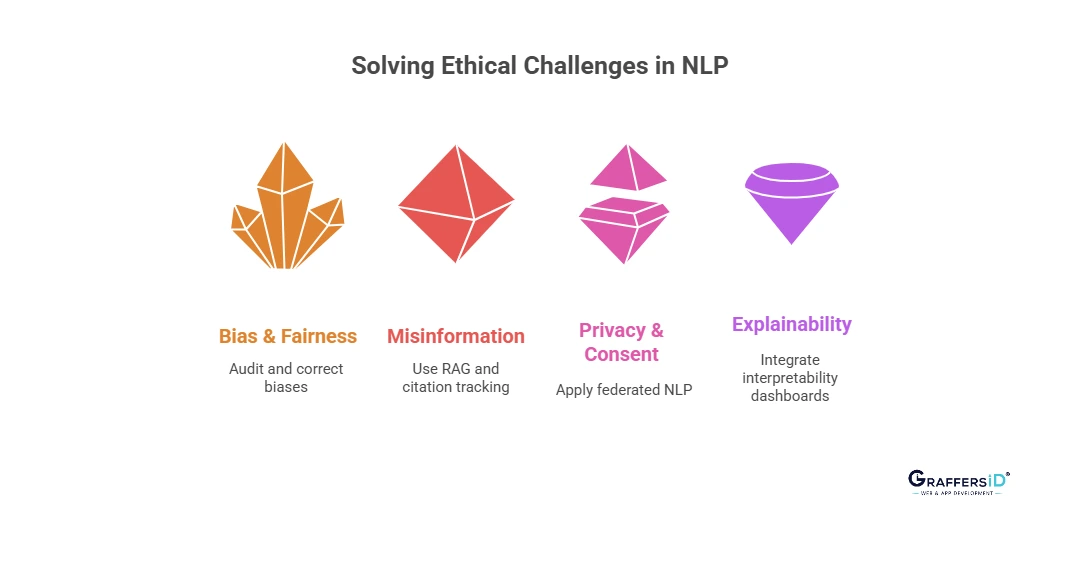
- Bias & Fairness: Socio-political biases in training data require regular audits and bias correction layers.
- Misinformation & Hallucination: Verification systems using RAG and citation tracking are gaining traction.
- Privacy & Consent: Federated NLP and synthetic data generation are being used to protect PII.
- Explainability: Tools like SHAP, LIME, and interpretability dashboards are being integrated into LLM workflows.
Future of NLP: 2026 & Beyond
Next-generation NLP focuses on:
-
Enhanced Memory & Reasoning: Long-form conversation tracking and planning.
-
Neuro-Symbolic NLP: Combining LLMs with symbolic reasoning for logic-based tasks.
-
Autonomous Agents: LLMs capable of API interaction and decision-making.
-
Efficient LLMs: Smaller, cost-effective models achieving performance parity with today’s giants.
Conclusion
From simple text parsing to context-aware reasoning, NLP is driving enterprise transformation, improving customer experiences, and revolutionizing healthcare, finance, education, and legal processes. Implementing advanced NLP solutions in 2026 is no longer optional; it’s critical for next-generation digital experiences and operational efficiency.
Looking to integrate NLP or build custom LLM solutions?
Hire expert AI developers from GraffersID to create intelligent, scalable, and secure NLP applications tailored to your business needs.
